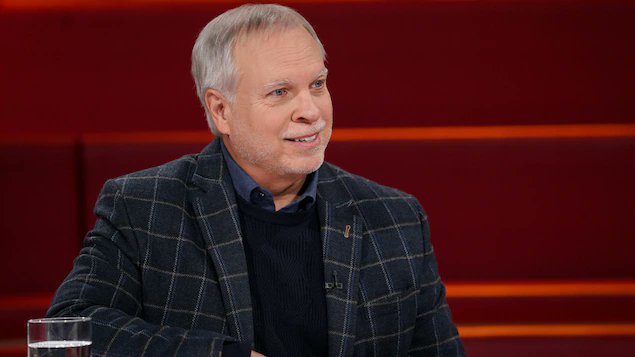
1) Quebec’s new chief of public health, Dr. Luc Boileau, asserted on Wednesday he believes the province’s severely weakened health system could handle a potential influx of long #COVID patients. In this thread, I will examine whether this assertion stands up to closer scrutiny.
2) This is what Boileau said in response to a sharply focused question by the @mtlgazette’s @JesseFeith: “I think we are. I think it’s going to be a challenge. I think the more they are vaccinated, in particular with the 3rd dose, the less they are at risk to develop long COVID.”
3) Dr. Boileau may have confidence in Quebec’s health-care system, but it’s been years since he managed the Montérégie health authority. The system today is in much worse shape than when Boileau ran hospitals and clinics on the South Shore 13 years ago.
4) Citing as-yet unpublished research, Boileau estimated that among the unvaccinated, “it’s possible that 30% of them, close to 30% of them, will still experience very important symptoms after four, eight, 10 and 12 weeks and it may last for a year, a year-and-a-half.”
5) At present, more than a half million Quebec adults have still not yet received a first dose of a #COVID vaccine – let alone a third – placing them at much higher risk of being infected by the super contagious #Omicron variant now circulating everywhere.
6) Let's presume conservatively that half of those vaccine holdouts never get vaccinated, and let's further presume that only 10% of those unvaccinated holdouts develop long #COVID, that would mean the addition of 25,000 patients with chronic illness who would need to be treated.
7) This predicted influx of long #COVID patients – in addition to those who developed the chronic form of the #pandemic illness long before Omicron’s arrival – will no doubt pose a huge burden to a health system some have argued has already collapsed. montrealgazette.com/news/local-new…
8) Consider, too, that Quebec surgeons must clear a backlog of at least 148,000 surgeries – many of which had to be put off during the #pandemic. Consider also the projected increase in cancer mortality in Quebec as a result of missed screening during this unprecedented crisis.
9) McGill University researchers project that délestage during the pandemic, or purposely ramping down clinical activities, will result in nearly 2,800 more cancer deaths in Québec by 2030. Many of these patients will be treated for years in hospitals and clinics before they die.
10) Lest skeptics doubt my long #COVID extrapolations for Quebec, it’s reasonable to look at Finland's experience. The government there is warning long #COVID could become that country’s largest chronic disease, with as many as one in 50 infected children also developing it. 

11) Last May, I wrote a column in the @mtlgazette, entitled, “Has Quebec abandoned those suffering from long COVID?” That column gave an estimate at the time of 30,000 Quebecers with the chronic affliction. montrealgazette.com/news/local-new…
12) It’s safe to assume that number has grown since then, which is probably one of the reasons why Dr. Boileau repeatedly emphasized long COVID during his appearance last Sunday on Tout le monde en parle, Quebec’s most-watched TV show. But what is long COVID, after all? 

13) According to England's National Health Service, symptoms of long COVID include extreme fatigue, shortness of breath, chest pains, “brain fog,” insomnia, heart palpitations, dizziness, joint pain, rashes, anxiety, and tinnitus, among many others. nhs.uk/conditions/cor…
14) Still, there is so much that's not known about long COVID. But one thing is certain: in its current state, Quebec’s fragile health-care system may not be able to adequately treat this influx of patients in the years to come, contrary to Dr. Boileau's optimism. End of thread.
ADDENDUM: I'd like to refer you all to an excellent Twitter thread on #LongCovid from a couple of hours ago by Dr. Wesley Ely, sub-specialist in pulmonary critical care, laying out the impact of this chronic illness on the lungs.
https://twitter.com/WesElyMD/status/1489006828533043202
• • •
Missing some Tweet in this thread? You can try to
force a refresh












